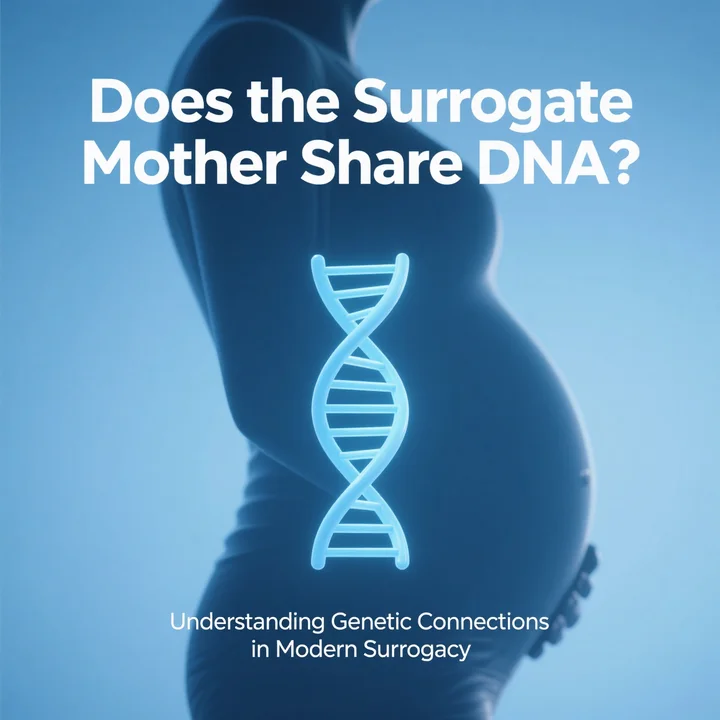The short answer is: It depends on the type of surrogacy. In modern gestational surrogacy (the most common type), the surrogate mother does not share DNA with the baby. However, in traditional surrogacy, she is the biological mother and does share DNA.
Understanding the Two Types of Surrogacy
1. Gestational Surrogacy (No DNA Shared)
This is by far the most common form today, accounting for over 95% of surrogacy arrangements. Here’s why there’s no genetic connection:
- The embryo is created through IVF using either:
- The intended mother’s egg (or donor egg)
- The intended father’s sperm (or donor sperm)
- The surrogate is simply the “oven” – she carries the pregnancy but has no genetic contribution
- This method is preferred because:
- Eliminates genetic ties to the surrogate
- Provides clearer legal parental rights
- Reduces emotional complications
2. Traditional Surrogacy (DNA Shared)
This older method is now rare (less than 5% of cases) because:
- The surrogate uses her own egg, making her the biological mother
- The baby inherits:
- 50% of DNA from the surrogate mother
- 50% from the intended father/sperm donor
- This creates potential complications:
- More complex legal situations
- Possible emotional attachments
- Ethical concerns in some cultures/religions
Why This Distinction Matters
The difference between these two types affects several important areas:
Legal Rights:
- Gestational: Clear parental rights go to intended parents
- Traditional: Surrogate may have legal claims to the child
Medical Process:
- Gestational requires IVF and embryo transfer
- Traditional can use artificial insemination
Religious/Cultural Views:
Some religions prohibit traditional surrogacy due to concerns about:
- Lineage and inheritance laws
- “Transgressing natural bounds”
- Potential for confusion about motherhood
The Bottom Line
If you’re considering surrogacy today, you’ll almost certainly be looking at gestational surrogacy where:
✅ The baby has no genetic connection to the surrogate
✅ Parental rights are clearer
✅ The process is more straightforward medically and legally
Traditional surrogacy still exists but is much less common due to these complexities. Always consult with fertility specialists and legal experts to understand which option best fits your situation.




